Import Procedures
S&H Core Courses
Our full day and 2-day S&H favourites are here to deliver a broader knowledge on either a more advanced subject or coveringan a range of subjects at a beginner level. These full day courses are always hosted live, to allow for interaction and questions, they can be held face to face or in a virtual classroom environment.

Beginners Guide to Exporting & Importing
This engaging and informative one-day course will introduce you to the world of exporting and importing and focus on the terms and practices used through interactive exercises and activities. This will give you an insight into how goods are bought and sold worldwide.

Beginners Guide to Customs Procedures
This course focuses on the practical aspects of UK Customs procedures. It covers the crucial areas of Customs compliance and provides a comprehensive overview of the Customs Special Procedures that exporters and importers can utilise to save import duties and taxes. In the post-Brexit era, organisations are under increased pressure to demonstrate their understanding of Customs procedures to HMRC, and this course equips you with the knowledge and skills to do just that.
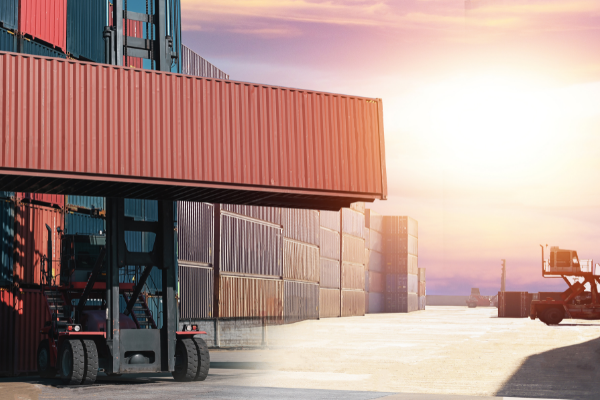
Import Essentials: Focus on Importing
This core S&H training course is an excellent way to learn about importing. It is designed to provide participants with a practical understanding of essential topics, such as Customs procedures and the UK Trade Tariff, as well as implications for choosing the correct shipping term, paying duties and managing the logistics. The aim is to provide participants with the knowledge and skills to streamline import operations and work effectively with internal departments and freight forwarders.

Preparing for a Customs Audit
This course is designed to help traders prepare for HMRC audits, ensuring their understanding and compliance with customs regulations. It will cover essential procedural requirements and key areas of focus in audits, such as valuation, origin preference, VAT, evidence of export, the use of special procedures (IP/OP), and Returned Goods Relief (RGR). Delegates will leave with a practical checklist to support thorough preparation for HMRC’s customs audits.

Advanced Guide to Import, Export & Customs Procedures
The course aims to guide you to a higher standard of compliance with import and export legislation. After attending, delegates will leave with greater confidence in updating/reviewing existing procedures, talking to logistics providers, and explaining complicated issues in a simple way to other business areas.

Understanding Origin & Preference
This interactive workshop clarifies the difference between origin and preferential origin, emphasising their role in trade compliance. Through case studies and exercises, participants will learn about essential documentation, declarations, and compliance verification for preferential rules in trade agreements. With the increase in HMRC audits, this session equips businesses with the skills to confidently manage origin determination and ensure compliance in both import and export activities.
Focus On Courses
Channelling our expert knowledge on a specific subject to deliver a in-depth training session. These half and full day training courses are aimed at delegates with a basic understanding of customs procedures and international trade.
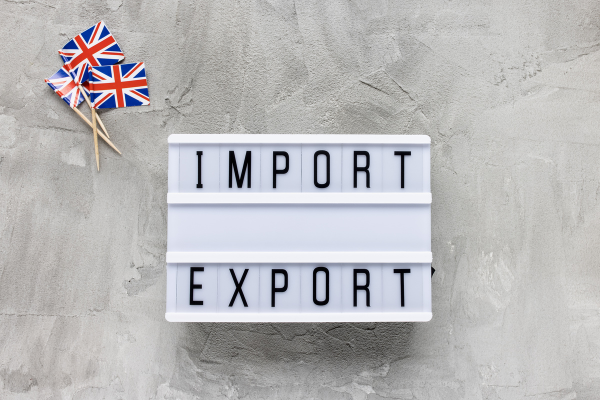
Focus On: Temporary Imports & Exports
This course is designed for those handling temporary movements of goods, whether for demonstrations, exhibitions, testing, or repairs. Participants will learn the customs and commercial processes required to manage these movements, ensure compliance, and minimise unnecessary costs. Whether goods are hand-carried or sent as unaccompanied freight, the course covers the necessary export and import declarations to manage temporary shipments and avoid customs delays effectively.
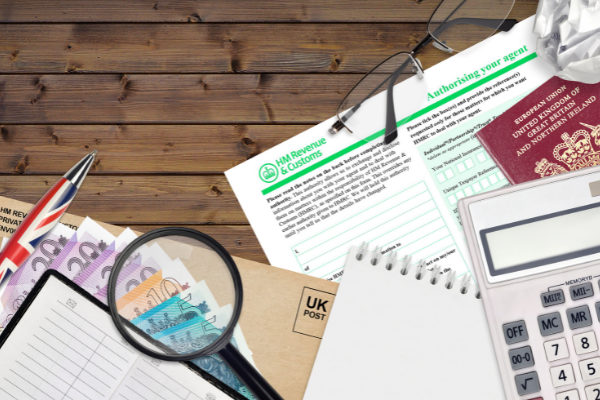
Focus On: AEO and Trusted Trader Scheme
This presentation focusses on what the HMRC Authorised Economic Operator Status accreditation is, but more importantly, examines whether being an AEO will benefit your own organisation or if staying outside the AEO system will have a detrimental effect on your business. AEO status was introduced in the EU in 2008 and is now part of UK legislation and will be linked to the new border management system coming into force the Trusted Trader Scheme.
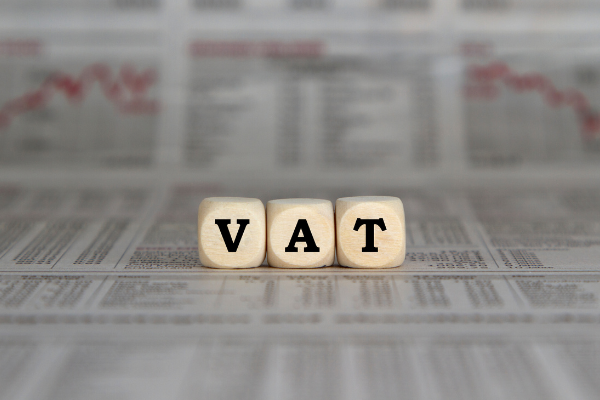
Focus On: VAT in International Trade
This session provides essential guidance on managing VAT in international trade. Participants will learn about UK VAT zero-rating for export supplies, required evidence, VAT obligations for receiving supplies, handling import VAT, and postponed VAT accounting (PVA). The course also covers reclaiming import VAT and when a UK business needs VAT registration in foreign markets, including the EU. Gain practical knowledge to ensure compliance and streamline your VAT processes.

Focus On: ATA Carnets - A Practical Guide to Applying for and using
Since the UK departed from the EU, there has been a growing need to manage temporary movements of goods. If you're involved in sending or receiving items for purposes such as demonstration, exhibition, testing, or using professional equipment, the Passport for Goods may be worth considering. This half-day session will introduce you to the ATA Carnet Scheme, an international system designed for the temporary movement of goods.
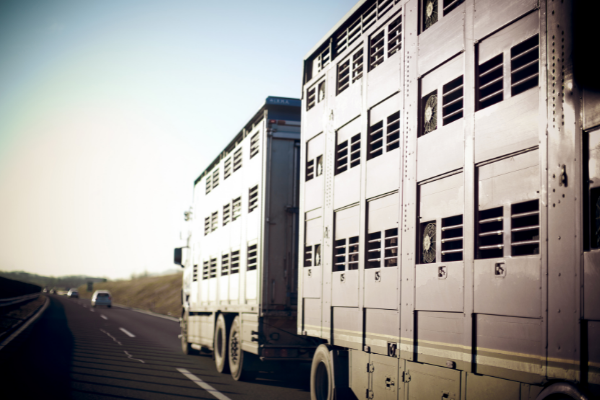
Focus On: IPAFFS
IPAFFS (Import of Products, Animals, Food and Feed Systems) is a web-based service for applying for Common Health Entry Documents (CHEDs) for imports into the UK. Applicable to live animals, POAO, HRFNAO and composite goods, understanding how to use this system is vital for many business sectors. Join us in reviewing how to access IPAFFS, complete an IPAFFS notification and process the import.

Focus on Food: Import Procedures
Importing food, drink, plant health products, POAO, and composite goods into the UK requires an awareness of the phytosanitary and pre-registration requirements. This full-day session will focus on what a trader needs to know to bring goods through customs and port health and meet other government department regulations, e.g., DEFRA. It will also demonstrate the pre-notification process on IPAFFS.

Focus On: Understanding Free Trade Agreements
This session is essential as the UK develops independent trade arrangements to boost imports and exports. It covers foundational concepts of FTAs and PTAs and examines their structure, purpose, and key elements, like rules of origin, with emphasis on the EU-UK Trade and Cooperation Agreement (TCA). This course empowers professionals to navigate international trade confidently and leverage FTAs for a competitive advantage.

Focus On: Incoterms® 2020 Rules
Engaging in global trade can expose companies to increased risks and costs, such as lost goods, unnecessary delays, and disputes. Clearly defining responsibilities within the supply chain can mitigate these issues, which is the purpose of the Incoterms® Rules that have been in place since 1936. However, Incoterms® are often misunderstood and misapplied. Ensure you are utilising them correctly by participating in our full-day interactive course.
Technical Workshops
Are you looking to learn a particular skill? Our technical workshops cover a range of topics and aim to enable the delegates to come away with a practical skill, such as how to complete an export entry or knowing how to classify goods. You can expect to spend some time in breakout rooms when learning in the virtual classroom to work on practical examples of what has been covered in the presentation.

How to Complete Import Entries
This workshop is designed to equip you with the knowledge and skills required to complete import Customs entries in the UK. It provides delegates with an understanding of how to build the data entry information, which data elements are essential, and how to declare payment methods. By the end of the session, you will have the knowledge to complete a basic import Customs entry and the confidence to build on this to submit more complicated entries. This is important whether you are an agent or importer.
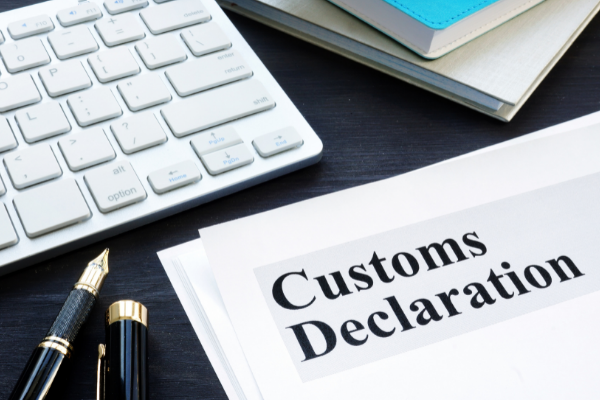
Advanced CDS Technical Workshop: Imports
This advanced workshop will not only teach you how to create an import declaration on the Customs Declaration Service (CDS), but also provide you with the confidence to do so effectively. Each data element group will be thoroughly explained, with illustrative examples provided. Our technical advisors, with their extensive experience in multiple software solutions for CDS entries, will equip you with the practical knowledge to complete Customs import declarations.
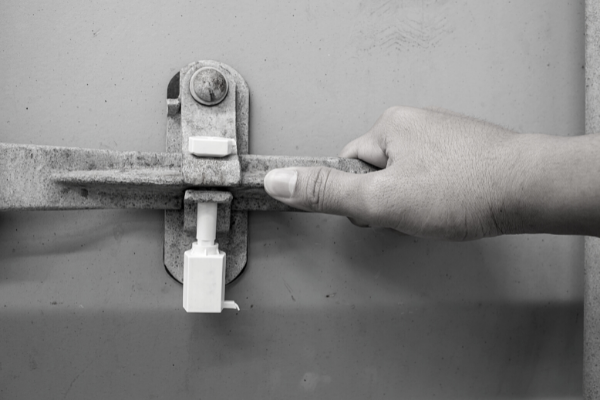
Customs Warehousing Explained - Technical Workshop
With the changes brought about by the UK's exit from the EU, more companies are turning to customs warehouses as a crucial tool for maintaining an efficient supply chain. This workshop provides a comprehensive guide to setting up a customs-bonded warehouse facility in the UK. You will learn how to improve cash flow, navigate new customs regimes and trade agreements, and save money using Simplified Procedures, all while ensuring compliance with post-Brexit customs requirements.

Inward Processing Relief - IP Workshop
This course provides a comprehensive overview of Inward Processing (IP) and Outward Processing (OP), essential customs procedures that allow businesses to bring goods into the UK for processing, repair, or service without incurring unnecessary duties or VAT, especially when the ownership of goods being returned for repair, service or calibration are not yours. By using these special procedures correctly, businesses can significantly reduce costs and improve efficiency.
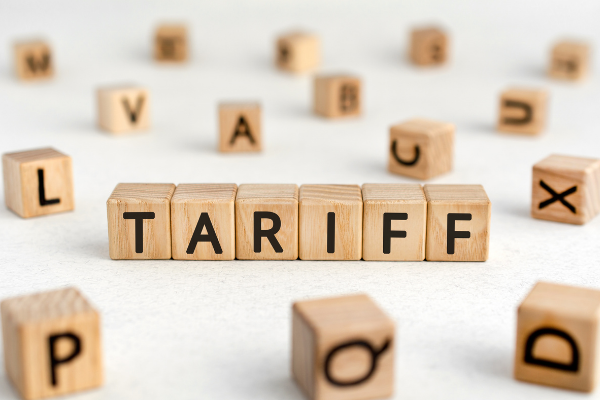
Tariff Classification Explained - Technical Workshop
This course provides a comprehensive overview of Inward Processing (IP) and Outward Processing (OP), essential customs procedures that allow businesses to bring goods into the UK for processing, repair, or service without incurring unnecessary duties or VAT, especially when the ownership of goods being returned for repair, service or calibration are not yours. By using these special procedures correctly, businesses can significantly reduce costs and improve efficiency.

The Importers Workshop: 2 Day Advanced Guide to Import Procedures
This highly popular two-day workshop, a practical follow-up to Import Essentials, focuses on applying customs procedures in real-world scenarios. Participants are encouraged to bring samples of their own import documentation, allowing hands-on exercises to turn theoretical knowledge into practical skills. Through these interactive sessions, delegates will gain a deeper understanding of customs rules and receive clear, actionable guidance on import regulations.

Valuing Goods for Customs Purposes - Technical Workshop
This hands-on course covers essential customs valuation principles, focusing on the WTO Valuation Agreement and its application under UK law. Participants will learn the differences between intercompany pricing and customs valuation and how to calculate import values, including required cost additions and exclusions. Through practical exercises, attendees gain insights to ensure compliance and accuracy in valuing goods for customs, whether for sales, returns, temporary movements, or free-of-charge items.
Face to Face Courses
All of our Face to Face training courses are delivered in a Covid-19 secure training room. The safety of our trainers & clients is of upmost importance to us. Our Face to Face courses will be limited to a maximum of 10 delegates.

Beginners Guide to Exporting & Importing
This engaging and informative one-day course will introduce you to the world of exporting and importing and focus on the terms and practices used through interactive exercises and activities. This will give you an insight into how goods are bought and sold worldwide.

The Importers Workshop: 2 Day Advanced Guide to Import Procedures
Practical follow-on to Import Essentials, this popular 2-day workshop helps put customs procedures into practical use. Delegates are encouraged to bring samples of their own import documentation. Exercises on customs procedures transform theory into practice and add value and impact to this in-depth workshop. The aim is to increase understanding of the customs rules and provide clear guidance on import regulations.

Inward Processing Relief - IP F2F Technical Workshop
Moving goods for process or repair / bringing them in for service, repair or process can mean incurring unnecessary and unrecoverable costs unless you use the correct customs special procedures. Operating IP, and utilising OP, can save a lot of money but it needs to be set up and managed correctly. This workshop examines when to use these procedures, how to apply and how to maintain compliance. Ideal for anyone currently using IP/OP or just wanting to know more.

Tariff Classification Explained - Technical Workshop
In this workshop learner will find out why the tariff is so important, not only because it contains the commodity codes classifications but because of it's link to other trade measures. It looks at the structure of the Harmonised System (HS) and uses interactive session to help you understand how to classify your goods, the importance of section and chapter notes and how and when to use the General Interpretative Rules (GIRs).

Customs Warehousing Explained - Technical Workshop
More companies than ever before are now considering a customs warehouse as vital to an efficient supply chain. This workshop explaining how to set up a customs-bonded warehouse facility in the UK will show you how to improve your cash flow, support customs regimes and trade agreements while goods are under customs supervision, and save money by using Simplified Procedures.

Import Essentials: Focus on Importing
This core S&H training course is an excellent way to learn more about importing into the UK. It covers customs issues and the implications of choosing the correct shipping term, paying duties, and managing the logistics. Whether you work in sourcing, procurement, finance, customer services, shipping or import administration, attendance will increase your confidence and awareness in dealing with overseas suppliers, transport companies, banks and HM Revenue & Customs.

Understanding Origin & Preference
All goods need to be valued correctly for customs purposes, whether a sales, returns, temporary movements or free of charge. The clear rules laid down in the WTO Valuation Agreement and adopted into UK law, will be explained during this practical workshop session as will the difference between intercompany pricing and customs valuation. It will illustrate how to build a price for import customs purposes and the costs that must be included and those that can be removed.
About Our Courses
Covering all aspects of the import process, these courses range from the simple basics of how to complete an import customs declaration, to a more detailed look at the HMRC CHIEF computer system and its replacement, the Customs Declaration Service (CDS), right through to comprehensive in-depth workshops, dealing with the subject of import procedures.
Don't forget that Strong and Herd can also provide you with bespoke in-house training to suit your specific training needs. Simply contact us to discuss your complete requirements.
FAQ's
- My boss would like to know the broad category of processes we can receive import duty relief on when we bring goods in from outside the EU?
According to UK Customs, the following seven processes may come under a duty relief regime, but remember you must understand the duty relief procedure fully as entitlement is generally dependent on certain conditions being met and the procedure followed. For further information use Volume 1 of the Tariff or the Trade Tariff on GOV.UK.
- Re-imported goods either re-imported unaltered or after process abroad (Notices 236 and 235);
- Temporary admission (Notice 3001+ https://www.gov.uk/guidance/temporary-admission)
- Reliefs for goods for specified descriptions or goods imported or used in specified circumstances, eg charities, rejected imports, etc;
- Goods relieved of customs duty unconditionally, including education, scientific and cultural materials;
- Goods relieved from Customs duty and VAT, eg documents, printed matter, advertising material
- Goods imported for process and re-export or release for free circulation (Notice 3001)
- End Use Relief on certain named goods (Notice 3001)
- If items are brought into the UK for repair from the USA and the Importer of Record does not have an IP authorisation are there any schemes they could utilise to reduce the VAT and duty?
Under the UK/EU import duty relief schemes any EORI registered company (formerly known as the VAT number) can apply for Inward processing relief (IP) at the time of arrival of the goods under the simplified procedure (called Authorisation by Customs Declaration) covered by CPC 51.00.001 and Economic Code ECO02 for repair (but the goods must not be replaced). This suspends both duty and VAT on condition that a customs guarantee is in place to cover the amount, otherwise the amount must be paid and reclaimed later. The maximum usage of this system is 3 times in a 12 month period or £500k of goods value whichever is reached first. The application request is made on the C88/SAD import entry in Box 44. This gives 6 months for the repair and on export a Bill of Discharge BOD3 must be sent to the National Import Reliefs Unit (NIRU) in Belfast showing the export entry number under CPC 31.51.000.
- We bring in textiles and clothing from Singapore and currently most of it incur a duty rate of 12%. We understand that the EU has a Free Trade Agreement with Singapore and we asked our suppliers if they could issue preference statement so we can claim a lower import duty rate. They have come back and confirmed that some of the goods they ship to us do qualify under the FTA but others don’t, but they have said that there isn’t much point them making these declarations yet as the duty hasn’t changed. I thought FTAs always meant that the customs duty rates became zero. Is this something to do with the UK leaving the EU in January 2021, are we excluded from the Agreement?
The FTA between the EU and Singapore FTA did come into force on 21st November 2019 and, while the UK is in the Implementation Period though we are not a full member of the EU all EU Trade Agreements apply to the UK, so no this has nothing to do with Brexit. What we often don’t appreciate is that Free Trade Agreements do not always make trade “free”, they are negotiated deals that affect each party slightly differently dependent on their own international trade policies and priorities. With regard to the agreement between the EU and Singapore there is a staged reduction of duty rates itemised in staging categories set out both in the Union's and the Singapore Schedule of Tariffs. The plan is that customs duties will be reduced over a 5-year period. On the EU Schedule clothing (Chapter 62) will become zero-duty during Stage 5 (21st November 2023). Your supplier isn’t quite right though, there has been a reduction in customs duty for clothing in year one: the standard tariff of 12% become a preference rate of 10%.






